We’re a Shopify SEO agency that fixes your store’s structure - taxonomy, product data and collections - to unlock discoverability across search, ads and AI discovery. Most stores we work with double organic revenue in 12 months.
The expert Shopify SEO agency
Who we are
Most SEO agencies aren’t built to handle large product catalogues. We are - combining deep technical expertise, Shopify-native tools, and a proven system for structuring high SKU-count stores at scale.
We're also the team behind Macaroni, a revolutionary SEO platform that integrates directly with Shopify.
Here are a few of the companies we’ve worked with...

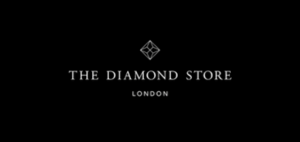





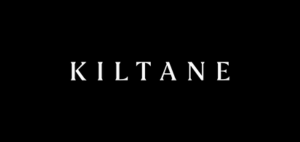

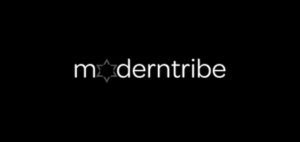
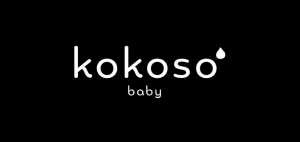
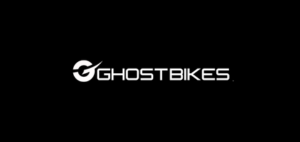
Our Approach
The problem
Structure becomes the bottleneck
As stores grow, the site’s underlying structure falls behind. Collections get messy, filters don’t work, and navigation breaks down — making it harder for customers to find what they need.
Product data doesn’t support discovery
Missing or inconsistent attributes limit visibility. You shrink the number of ways people can find your products - in organic search, in paid ads, and in how AI tools interpret your store.
SEO, ads and AI all start slipping
Pages stop ranking. PPC costs climb. AI discovery tools overlook you. Not because of your products - but because your site isn’t structured to support scale.
The solution
Rebuild the foundation
We don’t tweak around the edges - we rebuild the spine of your store: categories, product relationships, and filters, grounded in real customer demand.
Make your catalogue do the heavy lifting
Once structured properly, your product catalogue becomes a growth engine - driving visibility, reducing CACs, and opening up new revenue paths.
Optimise for AI discovery
We design your site to be understood by both humans and machines - giving you the structure needed to show up in Google SGE, ChatGPT, and whatever’s next.
How we do it
Software built for Shopify
We use our in-house platform, Macaroni, to map demand, structure collections, and create optimised landing pages at scale - all designed specifically for the quirks of Shopify.
Data modelling that drives decisions
Macalytics helps us identify where growth is stuck and where structure is holding you back. It models performance and prioritises high-impact opportunities across organic, paid, and AI discovery.
Clean implementation, built to last
Our custom Shopify modules let us implement everything cleanly - from breadcrumbs to schema to internal links - without breaking your theme or bloating your CMS.
The outcome
100%+ organic growth
Most stores double their organic revenue within 12 months - driven by improved site structure, smarter targeting, and better page coverage across the catalogue.
20–50% improvement in paid performance
Improved taxonomy means more relevant landing pages - so paid campaigns convert better. You’re not rewriting ads - you’re making your site easier to buy from.
Visibility in a world of AI discovery
With clean structure and rich product data, your store is primed for discovery - whether through Google, ChatGPT, or whatever comes next.
Our expert team
MEET OUR SHOPIFY SEO EXPERTS

Sam is the founder and MD of Blink. He has been working in search engine optimisation since 2007, and is a regular speaker and writer on the subject of eCommerce digital marketing. He is heavily involved in all client projects.

Ian has over 25 years of software engineering experience, along with a Ph.D. in machine learning and natural language processing. He has also worked with organisations including McKinsey, McLaren and UK Parliament.

Elodie leads Blink’s eCommerce SEO department. She has extensive experience in international SEO and migrations to Shopify, as well as a passion for sharing knowledge. Elodie is also a native French speaker.

Lauren oversees Blink’s delivery function, bringing real diligence and expertise to the team, as well as a focus on continually developing and improving our internal processes.

Gideon brings over a decade of in-house SEO experience to Blink. He is particularly skilled in complex SEO areas such as taxonomy and architecture, and brings a real commercial focus to our analysis.

Originally from the Netherlands, Sarah also has more than 10 years experience in SEO strategy and account management. She is also passionate about advocating for women’s empowerment and gender equality in digital marketing.
Frequently Asked Questions
What makes Blink different from other agencies?
▼
Most agencies focus on output - writing blogs, chasing links, doing occasional technical fixes. Blink’s focus is outcomes. We’ve built our entire approach around maximising revenue from organic search for Shopify merchants with complex catalogues. That means combining SEO expertise with data science and engineering, not treating them as separate disciplines.We use proprietary technology to deliver work at scale. Macaroni speeds up many of the heavy-lifting SEO tasks that would take a team weeks if done manually - on-page optimisation, structuring internal linking, and analysis. Macalytics gives us the ability to tie activity directly to commercial outcomes, highlighting which parts of a store are underperforming and where the next gains will come from. Together, these tools make us significantly more effective than an agency working only with manual processes.Clients choose Blink because we remove waste, build structures that scale, and focus relentlessly on commercial growth. The goal isn’t more traffic for its own sake - we consistently double organic revenue within 12 months, while also improving performance across paid channels and new discovery platforms.
Do you only work with Shopify?
▼
No, but around 85% of our projects are on Shopify. Its consistency allows us to deliver projects faster and more efficiently. For non-Shopify platforms, additional time and cost may be required due to complexity.
What kind of stores do you work best with?
▼
Our approach is designed for stores where structure and scale matter most. Typically, that means Shopify merchants with 250 or more products - often stretching into the thousands. The more complex the catalogue, the more value we can unlock through restructuring taxonomy, improving product data, and creating scalable collection strategies.We also see the strongest results when a brand already has traction through paid channels. If you’re spending heavily on Google Ads or Meta but struggling with rising CPAs, SEO gives you a way to rebalance acquisition. By making your catalogue discoverable organically, you reduce dependency on paid while simultaneously making paid traffic more efficient.That doesn’t mean smaller stores don’t benefit - but the real gains come when SEO is a core growth driver, not a bolt-on. For Shopify brands aiming to grow quickly, restructure for scale, or expand internationally, our systems are built to deliver.
Do I need an agency that specialises in Shopify SEO?
▼
Yes - marketing complexity has exploded over the last decade, and SEO is no longer about ticking a few technical boxes. It’s an execution channel that demands speed, precision, and platform-specific expertise. A specialist Shopify SEO agency understands how to work within Shopify’s unique structure to build scalable taxonomies, optimise product and collection data, and capture high-intent search demand. If you're serious about growing organic revenue, working with a team that lives and breathes Shopify gives you a major advantage.
What’s Macaroni?
▼
Macaroni is our proprietary Shopify platform designed to automate and scale SEO improvements across large product catalogues. It helps implement and manage tasks like on-page implementation, collection generation, internal linking, schema, and reporting. On average, we've found that it makes us 20x more productive.
What is Macalytics?
▼
Macalytics is our Shopify analytics app that pulls in Search Console data and models it specifically for how Shopify stores work. It tracks clicks, impressions, and performance over time - helping us (and you) understand what’s really happening, much faster. It’s currently in beta, with a full launch planned for later in 2025.
What do we mean by "a large product catalogue" or "high SKU count"?
▼
At Blink SEO, we typically define a large catalogue or high SKU count store as one with 250 or more products. These stores require a very different marketing and SEO approach compared to smaller DTC (direct-to-consumer) brands.Complexity ramps up fast as a catalogue grows - most of the operational challenges emerge above 500, and they become critical at 1,000+.
Why is taxonomy so important for large product ranges?
▼
Taxonomy - how products are grouped and structured - plays a central role in SEO for large catalogues. It affects how easily customers (and search engines) can find relevant products. Great taxonomy helps improve user experience, conversion rates, and organic search performance.Simply put, taxonomy underpins everything - navigation, indexing, internal links, content strategy, and demand capture.
How do we handle thousands of products?
▼
With systems. Structured data, dynamic templates, indexable collections, and clear governance over product data and site structure.
How is marketing different for small vs. large catalogues?
▼
Small catalogues: The focus is on deeply showcasing individual products. For example, a store selling one ergonomic chair might highlight its materials, certifications, user benefits, and trust signals like reviews or influencer testimonials.Large catalogues: The focus shifts to helping customers navigate choice. Instead of persuading someone to buy a specific product, you're helping them choose the right one among many. This means organising your catalogue effectively with filters, categories, and internal search tools.
What do you mean by “AI discovery”?
▼
More and more product searches are happening through tools like Google’s AI Overviews, ChatGPT, and Perplexity - not just traditional search results. These tools summarise options, make product recommendations, and bypass standard SERPs altogether. “AI discovery” is about making sure your products are still visible in that world.
How does your SEO work help with AI tools like ChatGPT or Perplexity?
▼
We structure your store’s product data - categories, attributes, relationships - so that machines can read and understand it. That’s critical for showing up in AI-driven tools, which rely on clean, structured information to generate product suggestions.
Isn’t AI discovery still quite new - is it worth investing in now?
▼
Yes - because the foundations are the same ones that improve SEO, UX, and paid performance today. Clean taxonomy, structured product data, and machine-readable content help you perform now and prepare for what’s next. This isn’t a bet on the future - it’s future-proofing work that delivers immediate results.
Do you require long-term contracts?
▼
No. We don’t believe in long-term contracts that trap clients. Blink works on a rolling month-to-month basis, because we want performance - not paperwork - to be the reason you stay. If the work is scoped well and momentum builds, results speak for themselves.That said, SEO is not short-term. The improvements we make - restructuring taxonomy, building collections, re-engineering product data - are designed to deliver compounding growth over a 6- to 12-month horizon. We’re upfront about that from the start: you’ll see some uplift quickly, but the real returns come with sustained effort.The balance is flexibility with commitment. You’re not locked in, but if you want to see the full effect of our work, you should plan on giving it time. That combination of transparency and accountability is why most of our clients work with us for years - not because they have to, but because the growth is too valuable to walk away from.
What results can I expect from a Shopify SEO project?
▼
SEO is not instant - but it compounds faster than most store owners expect when done properly. The first 100 days are about laying the foundations: restructuring taxonomy, fixing duplicate content, applying schema, and cleaning up how collections and products are linked. During this stage, results are usually modest, though many clients discover organic is already contributing more than they thought once mis-attribution is corrected.From month four onwards, growth accelerates. New and restructured collections start to rank, internal linking flows authority more effectively, and product attributes are understood more clearly by search engines. By month six, it’s common to see 50–70% year-on-year organic growth. By month twelve, doubling organic revenue is a realistic target - not through gimmicks or one-off wins, but because the store’s structure now supports scale.There’s also a knock-on effect: paid campaigns perform better when landing pages are more relevant, conversion rates improve as navigation is simplified, and brand visibility grows across multiple channels. In other words, the compounding effect doesn’t stop at SEO - it lifts your entire acquisition mix.
How do you forecast results and set expectations?
▼
Forecasting is where most SEO agencies mislead. They’ll show you traffic curves, keyword ranking models, or projections that don’t tie to revenue. On Shopify, the problem is worse because GA4 under-reports organic sales, shifting many into “direct” or “unassigned”. If you use those numbers as-is, you’ll underestimate the true role of organic.Our process corrects that. We take your reported organic revenue from the last 12 months and add a buffer - typically around 30% from direct and unassigned - to account for misattribution. That becomes the baseline. We then model growth conservatively in the early months, recognising that structural changes take time to show, and more aggressively from month six onwards, when compounding effects kick in.The result is a forecast you can use in financial planning. It’s not based on wishful thinking, but on what happens when product data, taxonomy, and collection structures are fixed. We make the assumptions clear, track progress against them, and adjust if reality diverges. That transparency helps our clients plan with confidence, rather than guesswork.
